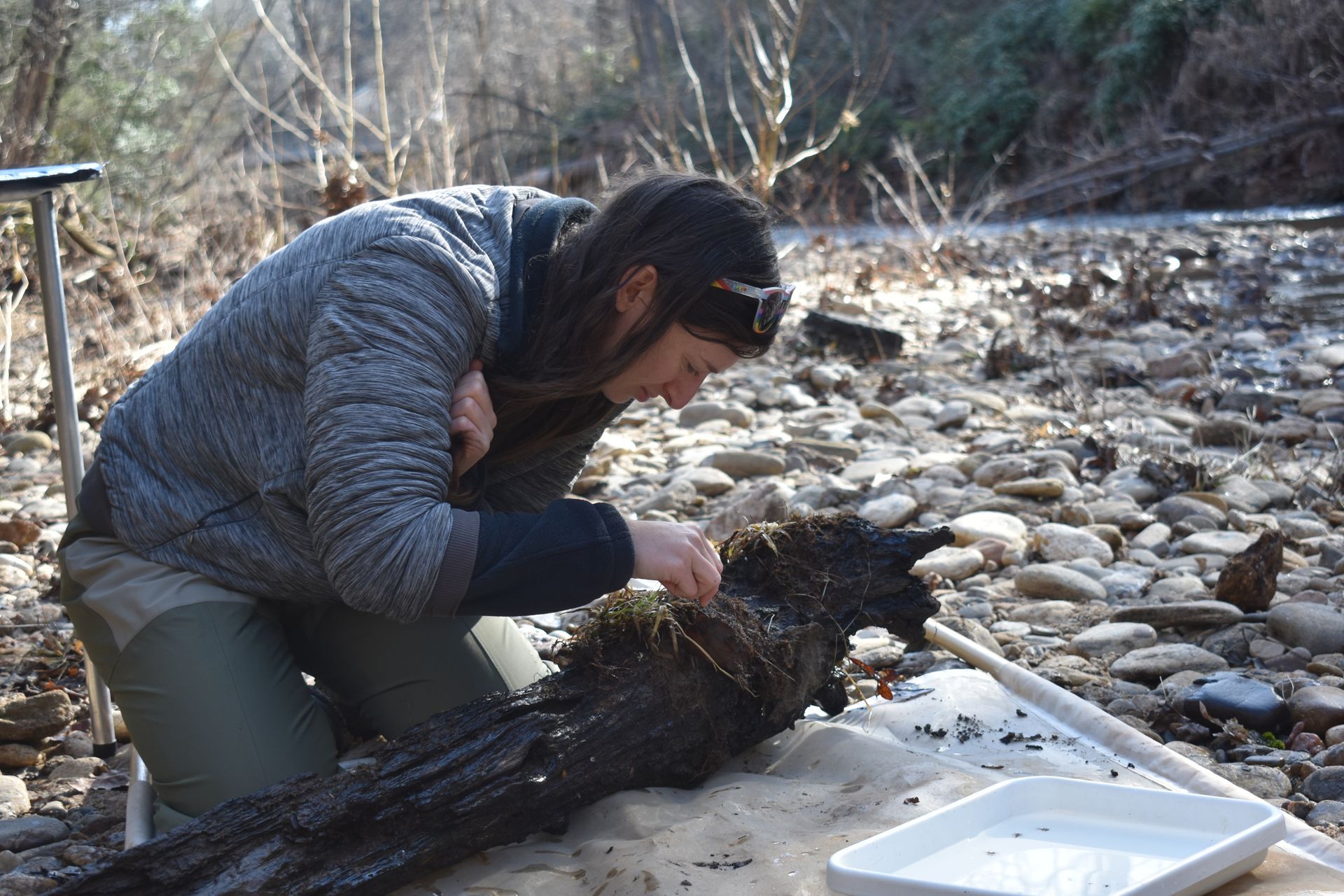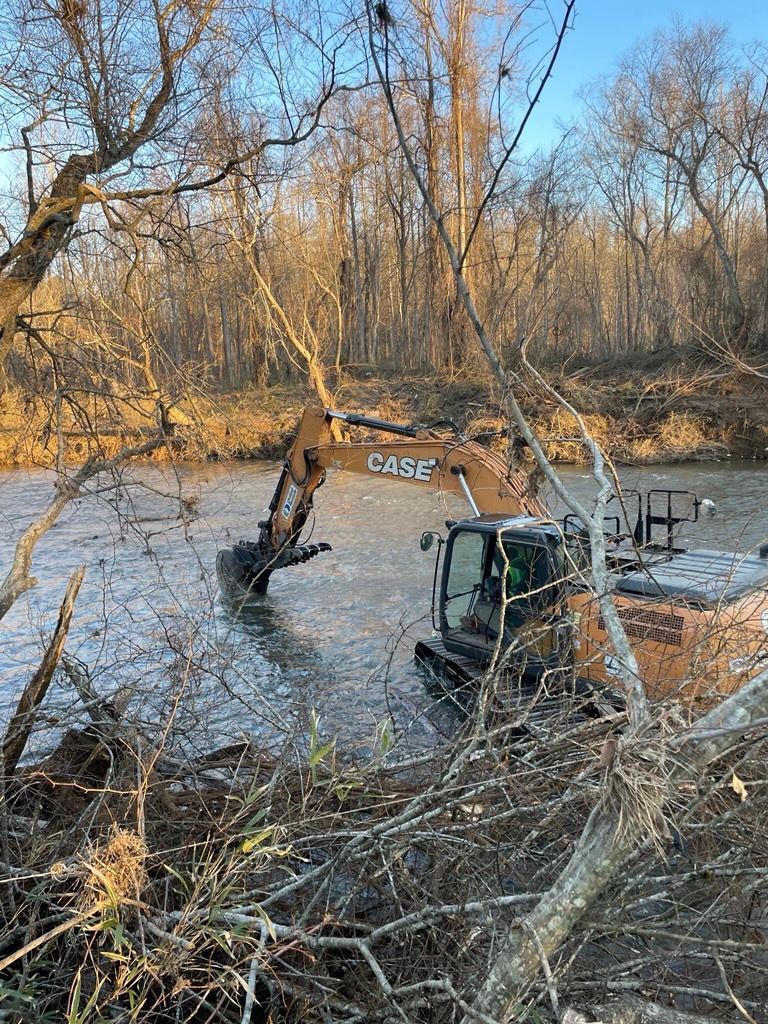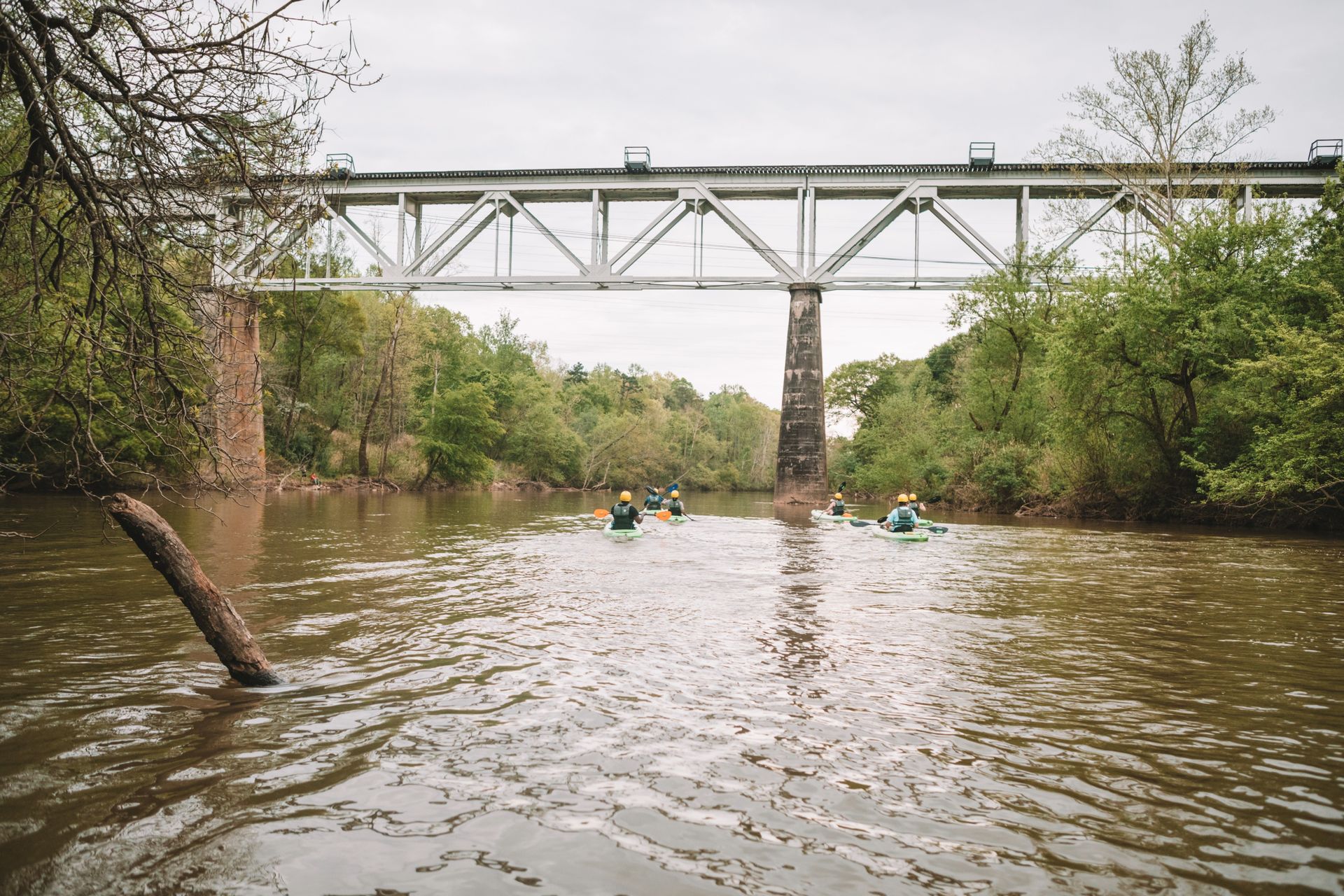Announcing our NC State Lab Certification in Benthic Macroinvertebrate Sampling!
Northern basin lab becomes first state-certified non-profit macroinvertebrate sampling lab in North Carolina
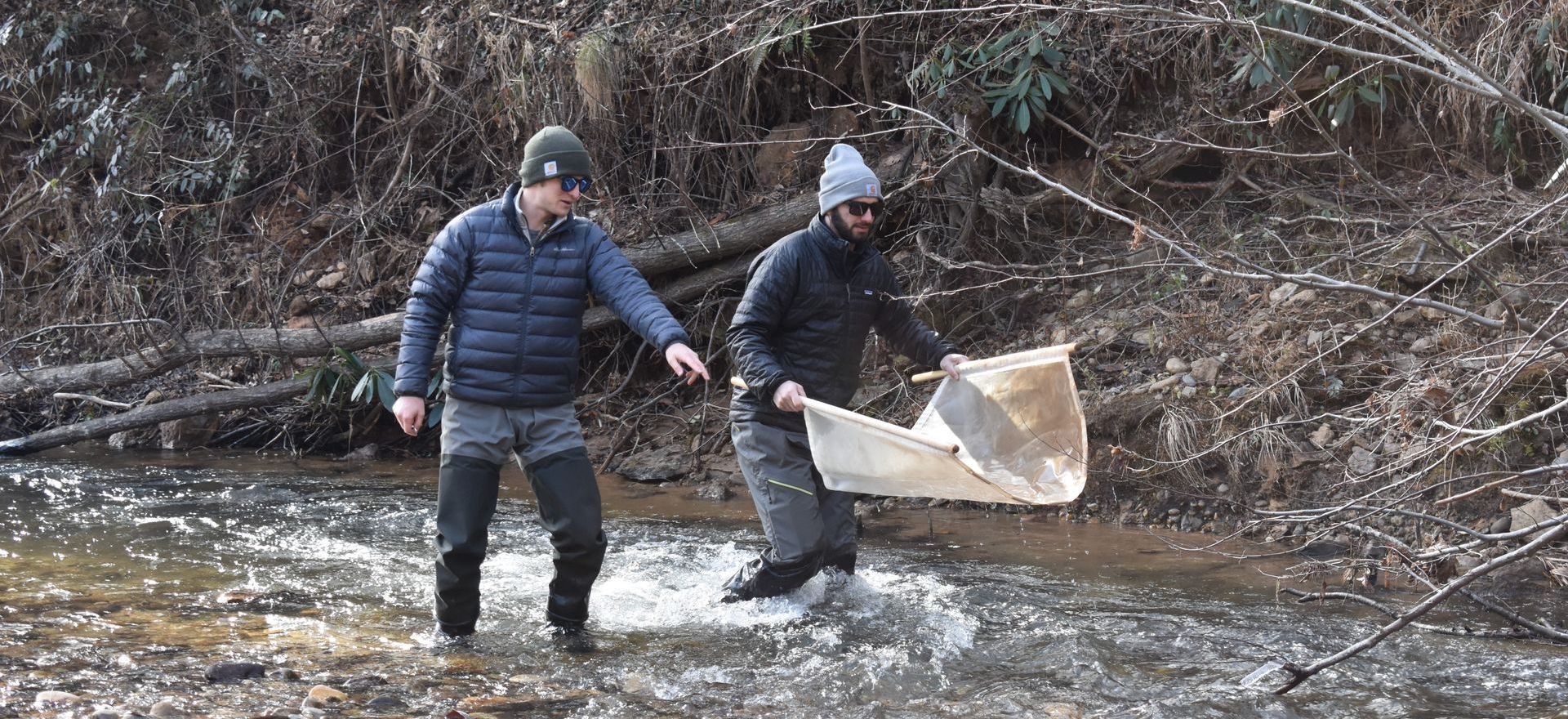
Great news from our Northern Catawba Basin! The North Carolina Department of Environmental Quality’s (DEQ) Division of Water Resources has recently certified Catawba Riverkeeper’s Northern Basin lab for benthic macroinvertebrate sampling, a common method of water quality assessment. This method examines the presence of aquatic insects in streams—the presence of diverse, stable, and pollution-sensitive populations of these macroinvertebrates indicates good water quality. In other words, when water quality deteriorates, certain animals serve as indicators of the change in water health.
To support the work being done across the state of North Carolina to monitor water quality in this way, our Northern Basin Director, Grant Buckner, spent the last two years completing requirements to become a state-certified laboratory for the use of macroinvertebrates to monitor water quality. After countless hours of training in the lab and the field, and after completing multiple bioclassification assessments, we have successfully demonstrated our capability and proficiency in performing biological analyses for certified parameters. This means that Catawba Riverkeeper is now qualified to report biological monitoring data to the Division of Water Resources for compliance with National Pollutant Discharge Elimination System regulations. Catawba Riverkeeper is now one of only eight labs in the state of North Carolina to receive this certification, and the only non-profit lab to do so.
With this certification, we will be able to conduct assessments of streams that have been overlooked or where new concerns have arisen. Not only will these assessments better inform our restoration work (and the work of our partners), but data from this lab will also influence the NC Department of Environmental Quality’s 303(d) list of degraded water quality in streams across the state.
This newly state-certified lab is located in the Foothills Conservancy of NC’s building in downtown Morganton, NC, where Grant Buckner is based, along with our Lake James Program Manager, Sophie McCarthy. Foothills Conservancy and the Lake James Environmental Association have been important partners in our shared work to protect water quality in the region.
This state laboratory certification has been made possible by generous contributions from Chip & Martha Whitfield, the Rostan Family Foundation, the Community Foundation of Burke County, and the Attorney General Environmental Enhancement Grant.

